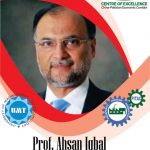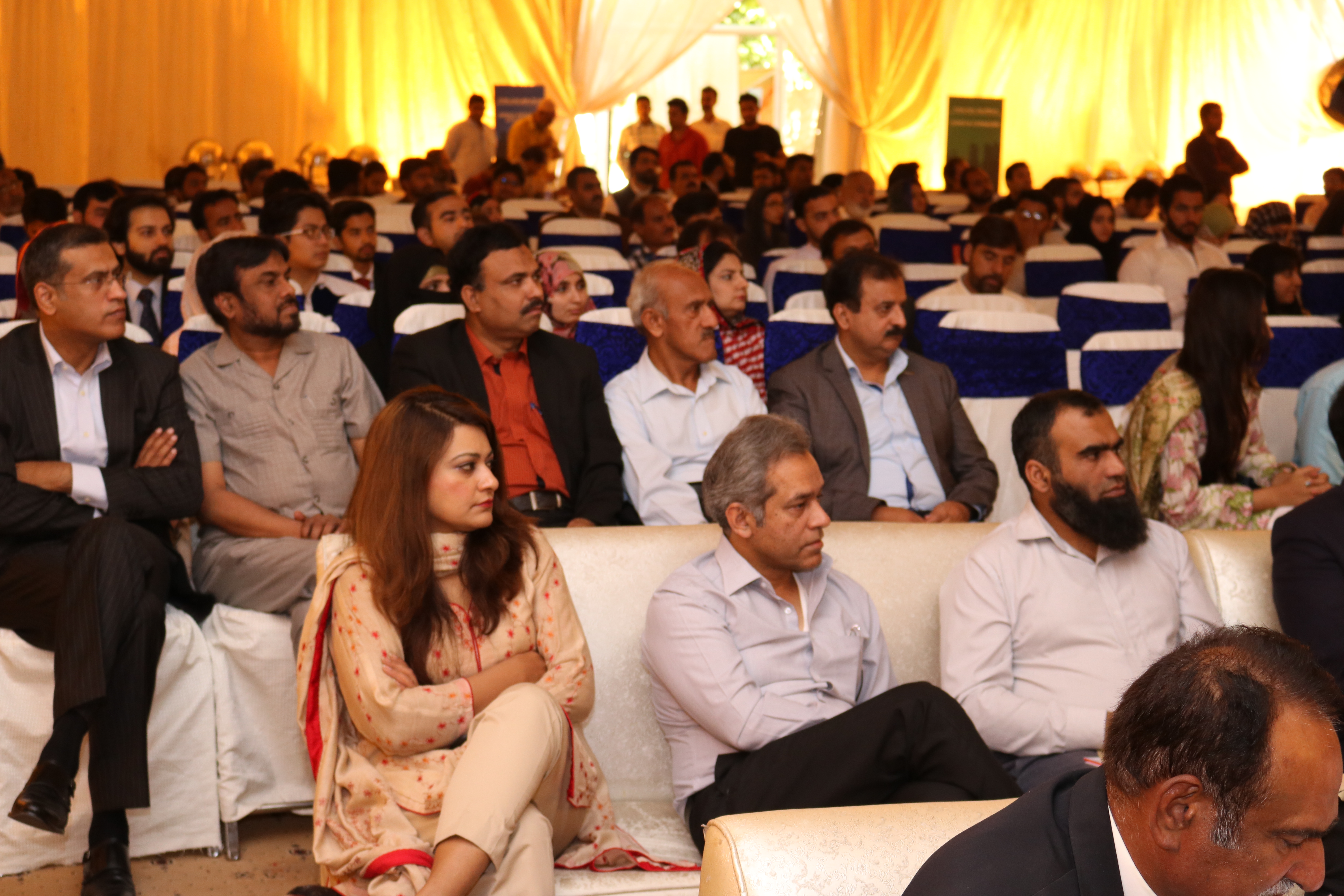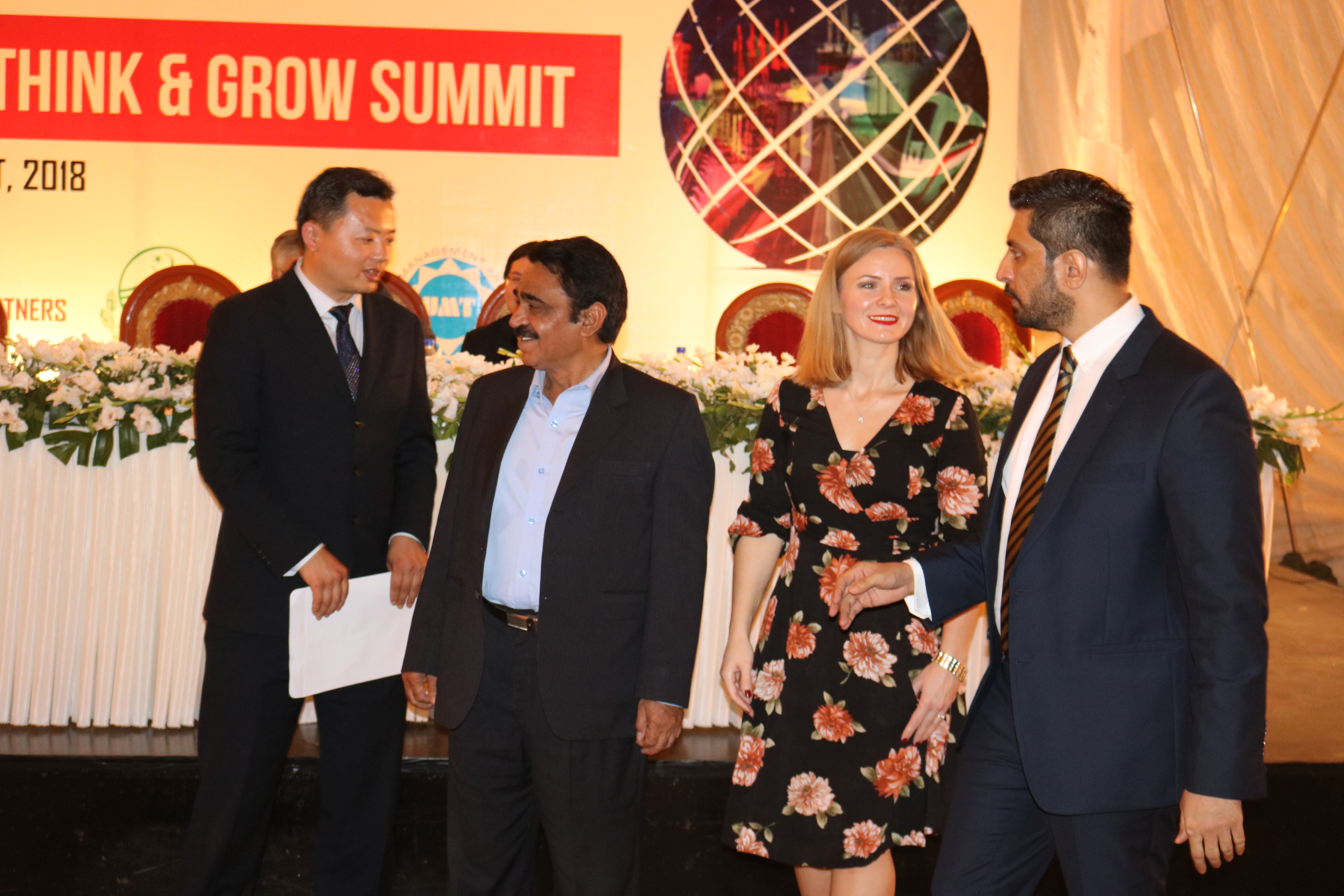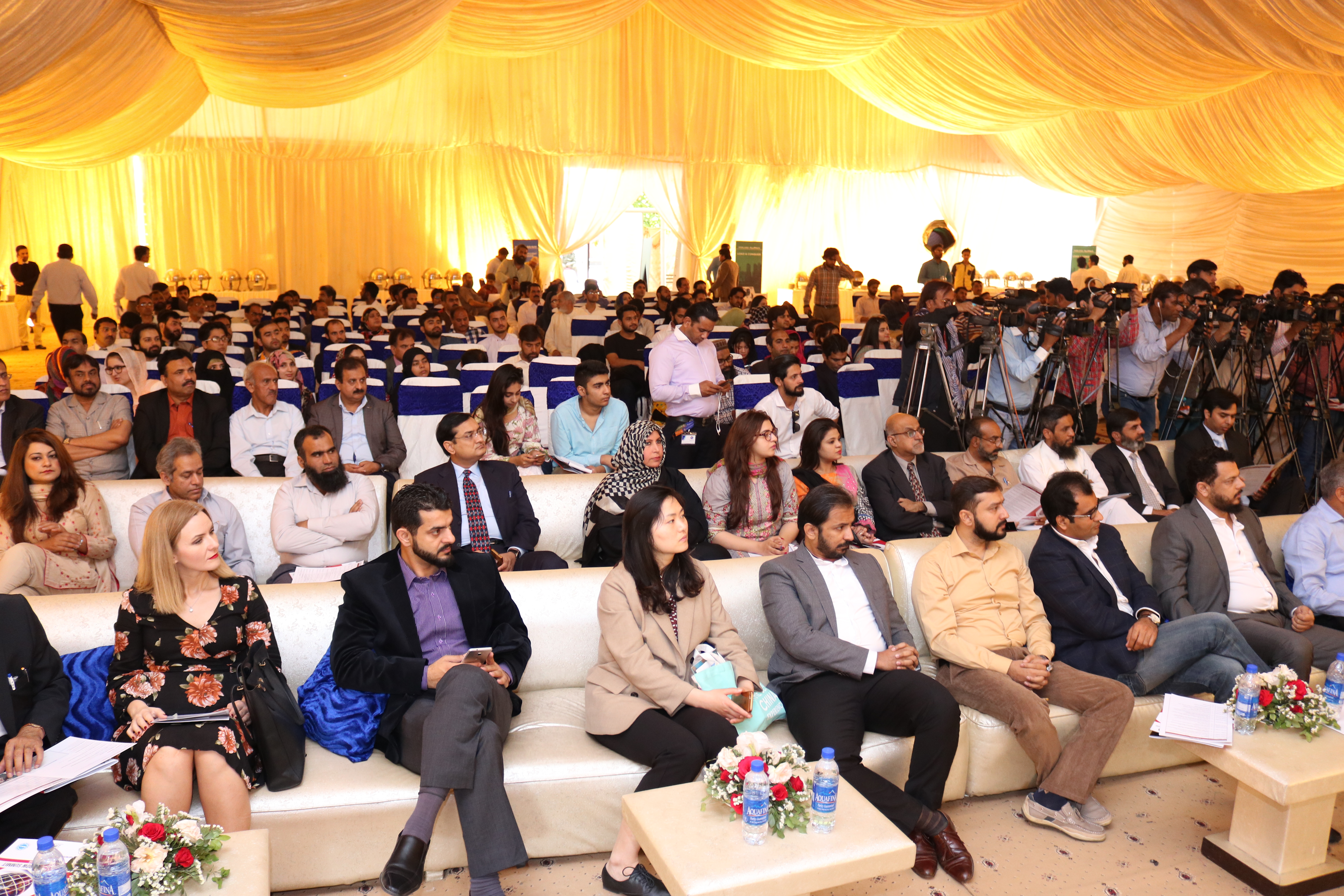The Inaugural Session featured a panel with Engr. Sarfraz Ahmed (Director General, Pakistan Industrial Technical Assistance Centre), Dr. Shahid Rashid (Executive Director, Centre of Excellence China-Pakistan Economic Corridor), Dr. Cui Yong (Vice Dean Jiangsu University, China), Dr. Hasan Sohaib Murad (President, University of Management and Technology), Dr. Hasnain Javed (Advisor / Master Trainer PITAC, Ministry of Industries and Production), Dr. Saleem Janjua (Policy maker and a Senior bureaucrat) and the Chief guest, Prof. Ahsan Iqbal (Minister for Interior, Planning, Development and Reforms). The event was being hosted with these esteemed guests representing both Pakistan and China respectively. In addition, a considerable Chinese presence with the rest of the delegation was also in attendance at the Summit. Apart from this, the local business community, relevant stakeholders, university students and other participants were also present in the august house.
Director General PITAC, Engr. Sarfraz Ahmed welcomed the guests for their presence at the event and initiated the agenda by stating the link between PITAC and its contribution in the CPEC related project activity. He also emphasized upon the fact that the institution represents a one of a kind facility that has been since its inception, serving towards establishing a technical skill force in the country through their vast hands on experience in the industries and production sector. The need for a smoother transition in context of CPEC and its impact on domestic industrial production was also discussed and the role of PITAC in this was underlined.
The opening remarks by Dr. Shahid Rashid were primarily outlining the role of Centre of Excellence for China-Pakistan Economic Corridor in the context of the historic investment flowing into Pakistan. Research based activities, roping in educational institutions, tie up with local business avenues and associations was coined as the most significant work done at the Centre of Excellence. The need for a curriculum change incorporating the practical framework with regards to the effects and dynamics of CPEC was stressed upon since that is an area that the local infrastructure lacks at this point in time. He also emphasized upon the success of the Centre of Excellence and its research team and urged the need for increasing the scale of research so as to gain a comprehensive understanding of CPEC related projects.
The key note address was given by our foreign delegate, Dr. Cui Yong, who explained how this investment from China is going to enhance the overall economic activity with time in different sectors within the country. He also stated that his visit to the PITAC facility and overall interaction with the business fraternity has enlightened him about the available facilities to handle the CPEC challenge in Pakistan. The need for economic cooperation was outlined along with specific areas of improvement such as technology transfer, greater infrastructural revision, education sector and developing adequate human resource in Pakistan. He also mentioned that this is a cooperation and therefore, it is a two-way relationship on an equal footing. He also mentioned that the opportunities in collaboration in the education sector and industrial development are limitless and that we should chalk out a way together to capitalize in on this factor.
Dr. Hasan Sohaib Murad, who was also the guest of honor spoke briefly about how this CPEC could be a game changer when it comes to the education sector in particular. He mentioned that there is a greater need to collaborate amongst educational institutions so that the benefits of this knowledge sharing are magnified. He also urged for a need to revisit our strategy towards ensuring that technical knowledge is also a part of the local curriculum so that it reflects the need for a greater local participation in CPEC related projects.
Chief Guest for the Summit, Prof. Ahsan Iqbal (Federal Minister for Interior, Planning, Development and Reforms) concluded the first session by laying down specific details about the progress of CPEC projects in terms of its completion. Projects that were completed, work in progress and to be initiated in the near future were all talked about in his respective address to the audience. He began by putting all the rumors, misconceptions, concerns and anticipations to rest by stating out plain facts with regards to the benefits that CPEC embeds within the project structure. He also clarified that this historic investment of over $45 billion over a span of a decade will serve as a gateway to prosperous Pakistan. Explaining the facts, the minister stated that a two-phase strategy has been applied, with the first phase nearing completion. This phase was tilted towards eliminating energy shortfalls and therefore, attracted a greater chunk of investment in this particular sector. Around $29 billion of the total investment is being directed towards the energy sector that is set to finance the wheels of development for infrastructure and industrial sector. A shortfall of over 10000MW has been covered majorly due to investments within this sector. He also pointed out towards the discovery of coal reserves in Thar, which holds reserves for an approximately 400 years if the production is set at 5000MW on an annual level. He termed this discovery as the game changer in the greater context and highlighted how it will fuel the economic success of Pakistan. Belt and road initiative was also mentioned about and the route of entire CPEC that is going to directly revitalize the industrial sector of Pakistan. Not only this but this economic activity will affect GDP growth and will add to creation of jobs (which remains a major concern in Pakistan) extensively. Prof. Ahsan Iqbal termed the development of Gwadar Port as crucial and highly lucrative in region’s context. He mentioned that Pakistan is destined to become the center of Asian trade and business activities due to the development of CPEC in the region. He also spoke about how there will be maritime trade and state of the art business centers in Gwadar, pointing out that one has already been made active. The Minister stressed on the need to have political stability for continuity of policies and how that is significant in the reaping maximum benefits from this CPEC projects. He mentioned that Pakistan is on its way towards progress and prosperity if political stability is ensured and the institutions are allowed to work uninterruptedly.










